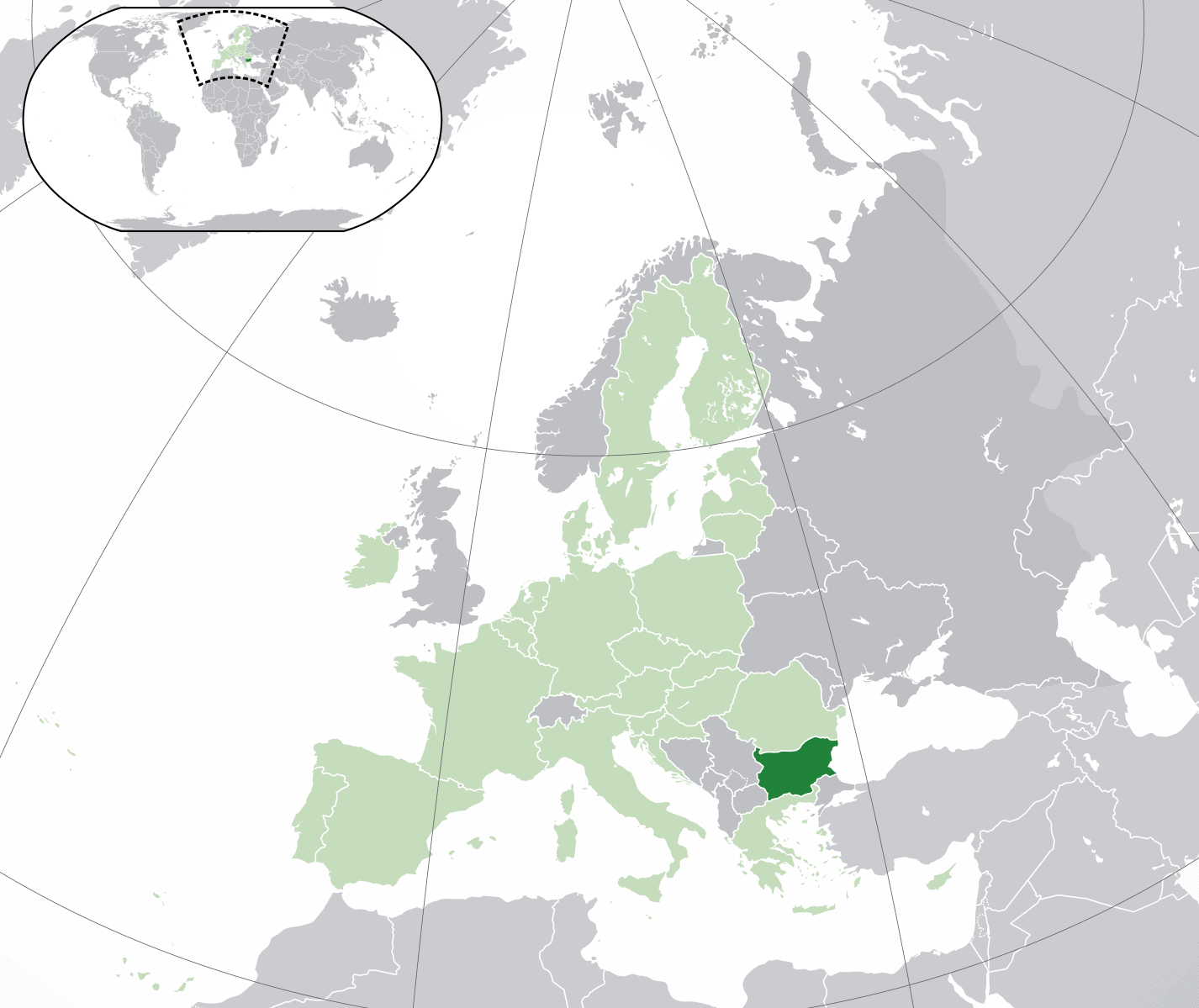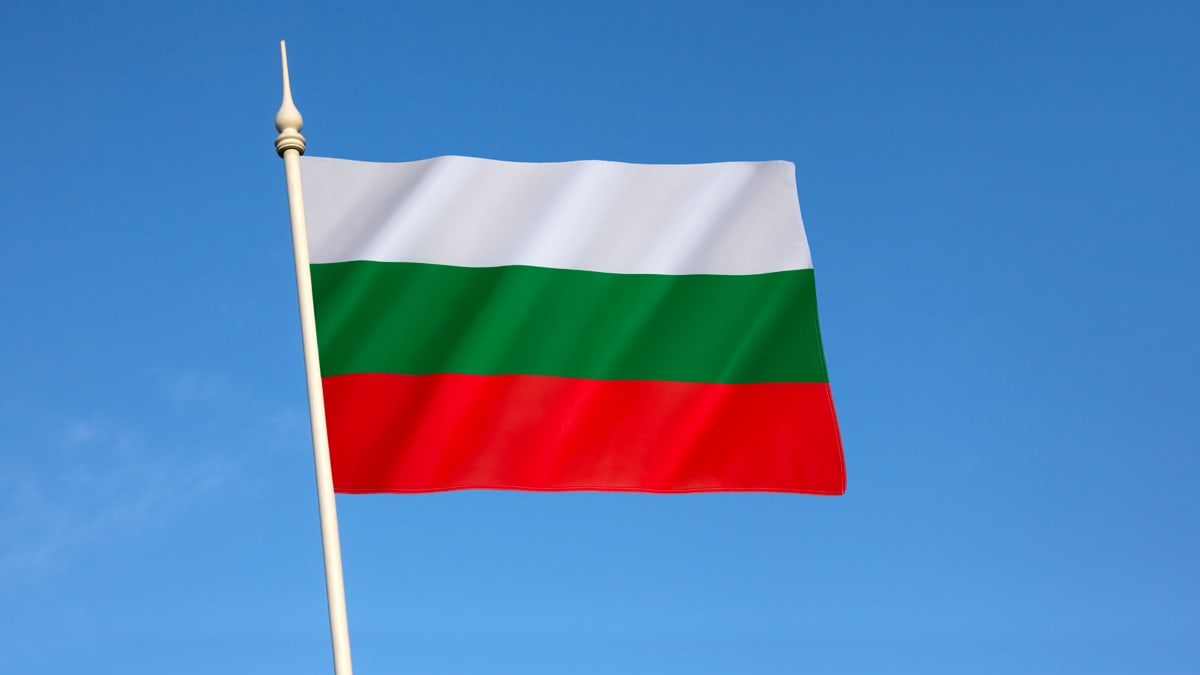Estimated reading time: 8 minutes
Bulgaria has become an increasingly popular country for expats and tourists, with living costs lower than almost all of the EU, making it an affordable and fast-growing economy for professionals, digital nomads and retirees.
In the north, by the Black Sea coast, Varna is one of the most sought-after destinations, with a summer coastal scene and lively nightlife centred around the beach and the 2.5-mile-long Sea Garden. Most of the city is pedestrianised, with interesting architecture and the beautiful Opera House.
Those relocating for business or career opportunities often head to Sofia, a modern city with numerous co-working office spaces, social events and language exchanges where expats meet to network with those from the same country.
Bulgarian residents enjoy low property prices, generous taxation regimes and an enticing range of potential business routes. Although the citizenship by investment scheme closed in 2022, there are other routes to permanent residency and citizenship.
Table of contents
About Bulgaria
Discover the key aspects of Bulgaria, including its currency, capital city, population, expat community, languages, climate, GDP, and geographical location in southeastern Europe.
Currency
Bulgarian Lev (BGN)
GDP
Bulgaria’s GDP (Gross Domestic Product) is $84.06 billion (£65.55 billion), with the economy growing year-on-year due to exports and increasing expendable income. The primary industries are tourism, agriculture, pharmaceuticals, IT and telecoms.
Capital
Bulgaria’s capital Sofia is a city with an ancient history, home to the famous hot mineral springs and the Alexander Nevsky Cathedral, alongside large public parks and Viennese architecture, with the Vitosha Mountain forming a dramatic backdrop.
Towns and cities
Bulgaria’s largest cities and towns are Sofia, Plovdiv, Varna and Burgas.
Population
6.87 million
British expats
Bulgaria has around 7,000 permanent British national residents but a far greater temporary expat community, with many owning holiday homes in Bulgaria’s coastal resorts.
Languages
The official language is Bulgarian, but some people speak Macedonian, a similar language considered a different dialect of Bulgarian. English is the most commonly spoken foreign language, particularly in tourist areas, spoken by around 35 per cent of the population.
Climate
The climate in Bulgaria varies between the north and the south, with southern regions more Mediterranean with hot, dry summers and milder winters. Northern Bulgaria is more continental, with greater rainfall and lower temperatures.
During the winter, the average temperature in the north can fall to -1°C (30.2°F) and reaches an average of 22°C (71.6°F) in the summer between July and August. In the south, temperatures are around 30°C to 32°C (86°F to 89.6°F) in the summer but can hit highs of 40°C (104°F).
Map

Bulgaria is in south-eastern Europe, towards the north of the Balkans, with a Black Sea coast and mountainous ski resorts including Bansko, Borovets and Pamporovo. Its closest neighbours include Romania, Greece, Turkey, North Macedonia and Serbia.
Citizenship By Investment Options
The Bulgarian government officially closed the citizenship by investment scheme in March 2022, which had previously offered foreign investors a passport in exchange for an investment of at least €1 million (£855,000).
However, the Bulgarian ‘golden visa’ remains open to applicants and offers residency for investors contributing €255,000 (£218,000) or more to the economy. Residency holders can relocate with family members and move freely throughout the Schengen Zone.
Depending on eligibility, varied visa routes and investments qualify for permanent residency, but most foreign nationals qualify by launching a company within Bulgaria. Rules include:
- Owning at least 50 per cent of the share capital.
- Creating at least ten full-time jobs.
- Investing at least BGN 500,000 or €255,000 (roughly £218,000).
Investors initially require a long-stay D visa, granted by the nearest consulate or embassy, and then travel to Bulgaria to submit a formal residency application. Permits must be collected in person from the Migration Directorate.
After five years, foreign nationals who have lived in Bulgaria for at least 30 months as legal permanent residents become eligible for citizenship by naturalisation.
Travel
Permanent residents can travel freely to and from Bulgaria and within the Schengen Zone. Bulgarian passport holders can travel visa-free to over 180 countries worldwide if they become eligible for full citizenship.
Timescale
Most visa applications for a long-stay permit take around six months to process.
Visas
Since Bulgaria is an EU member, the visa rules for British nationals indicate that UK passport holders do not need a visa or pre-approval to travel, provided their cumulative visits to EU countries have not exceeded 90 days within the last 180. Longer stays will require a visa or an appropriate work permit.
Learn more about Bulgarian visas and residency options.
Tax
Expats living in Bulgaria are considered tax residents if they spend over 183 days per year in the country. However, other factors may apply, such as their employment or business location and familial links to either Bulgaria or the UK.
Bulgarian tax residents must declare and pay tax on all their assets and income worldwide. In contrast, non-residents are only required to pay tax on earnings that originate inside Bulgaria.
Need Help with your Finances?
Cost Of Living
Living costs in Bulgaria are significantly lower than those in the UK, with an average monthly budget of BGN 3,818 (£1,665) for a family of four and BGN 1,087 (£474) for an individual, both excluding accommodation. Overall expenditures are 36.9 per cent more affordable, and rental prices are approximately 68.9 per cent less expensive.
Property
Foreign nationals are allowed to buy property in Bulgaria. Still, limitations apply, primarily that expats can purchase a home but are not permitted to own the land on which the building is constructed. Many people live in apartments purchased on a leasehold basis without a proportion of freehold ownership, similar to the UK.
Property investments do not count towards permanent residency or citizenship but may help with eligibility by showing that the foreign national has a long-term residential home in the country.
The alternative is to rent, with residences including apartments in the larger cities and complexes throughout the Black Sea coast and the northern ski resorts. Buyers can also purchase villas and townhouses in quieter areas.
| One-bedroom city centre apartment | BGN 680 / £297 |
| One-bedroom apartment elsewhere | BGN 503 / £219 |
| Three-bedroom city centre apartment | BGN 1,149 / £501 |
| Three-bedroom apartment elsewhere | BGN 829 / £362 |
View properties in Bulgaria listed for sale on Rightmove.
Healthcare
Facilities and treatments available in Bulgaria can be limited. Although most medical professionals in the larger cities speak English, doctors and clinics in rural regions are less likely to do so. Expats living in Bulgaria and making compulsory contributions to the national health insurance fund are normally eligible to receive public healthcare services if employed.
There are numerous private practices across Bulgaria, and expats who qualify for public healthcare often have supplementary private medical insurance to avoid long waiting times.
Dental care is often excluded from national health services, and expats may be expected to pay nominal charges for outpatient care, although most in-patient treatments are free.
Bulgaria Citizenship By Investment FAQ
We address common inquiries about Bulgaria Residence By Investment, providing valuable information to guide your journey towards citizenship and residency in Bulgaria.
It would be unusual for a full Bulgarian passport holder to have their citizenship revoked unless they voluntarily applied to withdraw their own citizenship status. However, in some scenarios, the government could potentially remove citizenship entitlements, although normally only after ten years from the original passport issue date.
Potential reasons could include discovering fraud on the application paperwork, failure to comply with Bulgarian visa terms and travel permissions or committing a serious crime.
While foreign nationals can qualify for citizenship following a minimum period of living in Bulgaria, eligibility criteria apply, which will often vary from those linked to permanent residence.
Citizenship applicants must:
– Be 18 or above.
– Have evidence of five years of permanent residence.
– Present a clean criminal record.
– Prove they are financially self-sufficient.
– Pass a Bulgarian language test.
They may also be expected to rescind their original citizenship status since Bulgaria does not technically recognise dual citizenship.
Direct flights between London and Sofia, the capital of Bulgaria, take just over three hours. Expats can fly from Heathrow, Gatwick, Stansted, Luton, Manchester, Birmingham, Bristol, Liverpool and Edinburgh.
The currency is the Bulgarian Lev (BGN). While Bulgaria is an EU member, the country has not adopted the Euro as its currency – although prices are often displayed in both denominations for the benefit of tourists.
Bulgaria is part of the EU, meaning British passport holders do not need a visa to visit the country provided their stay will not exceed 90 days within any 180-day period. Note that the 90-day threshold applies to all travel to any EU country within the same timeframe.
Expats intending to live, work, study or launch a business in Bulgaria will need a visa, usually beginning with a long-stay D-Visa and then applying in person for a residency permit once they have arrived in the country.
Related Information
Below is a list of related articles you may find of interest.
Resources
- Ministry of Foreign Affairs of the Republic of Bulgaria – www.mfa.bg
- Invest Bulgaria Agency – www.investbg.government.bg
- National Statistical Institute of Bulgaria – www.nsi.bg
- Bulgarian National Bank – www.bnb.bg
- Ministry of Health of the Republic of Bulgaria – www.mh.government.bg
